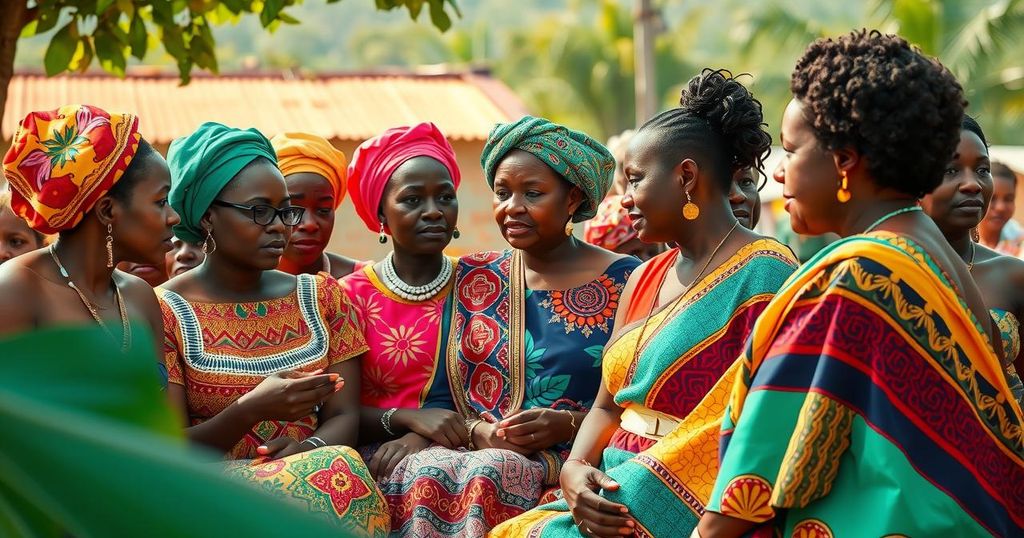Abike Dabiri-Erewa, Chairman of NiDCOM, calls for increased political and economic support for Nigerian women in leadership roles, addressing concerns about the decline in women’s representation in politics. She highlights the barriers of cultural biases, financial difficulties, and security issues, emphasizing the need for intentional efforts and policies to support qualified women. The importance of addressing trafficking and dignifying treatment for deported Nigerians were also discussed.
The Chairman and CEO of the Nigerians in Diaspora Commission (NiDCOM), Abike Dabiri-Erewa, has underscored the necessity for enhanced political and economic support for Nigerian women. In a recent interview, she expressed her concern regarding the declining representation of women in leadership roles and the various challenges they face, including cultural biases, economic constraints, and security risks.
Dabiri-Erewa lamented the significant drop in the number of women within Nigeria’s National Assembly, where representation has plummeted from 27 female lawmakers during her tenure to just nine in the House of Representatives and four in the Senate. She has emphasized that political parties must actively support qualified women to enhance their participation in politics.
The increasing costs and dangerous climate of electioneering in Nigeria have created additional barriers for women. Dabiri-Erewa highlighted the pressing need for political parties to reserve seats for capable women, asserting that this could lead to notable improvements in women’s political representation.
Cultural perceptions also hinder women’s political ambitions, with societal norms often discouraging them. Dabiri-Erewa recounted a dismissive anecdote illustrating these outdated beliefs, advocating for a societal shift that embraces female leadership.
She encouraged women to embrace confidence and step outside their comfort zones to exhibit their capabilities, arguing that their presence in leadership roles enhances governance. Conversely, she acknowledged that pursuing careers should not interfere with familial duties, affirming the dual responsibilities many women manage.
Dabiri-Erewa showcased the remarkable achievements of NiDCOM over the past five years, particularly in enhancing connections between Nigerians abroad and their homeland. She pointed out significant diaspora contributions, such as remittances exceeding $90 billion, and the importance of fostering investment and developmental initiatives.
However, concerns regarding the trafficking of Nigerian women persist, with many stranded in harsh conditions abroad. She called for urgent legal action against traffickers and emphasized collaborative efforts with various agencies to tackle these issues effectively, stressing the importance of raising public awareness.
On the topic of deported Nigerians, Dabiri-Erewa advocated for humane treatment, insisting that migration should not be equated with criminality. She reiterated her optimistic vision for the future, stressing the necessity of continued support for women in politics, diaspora engagement, and safeguarding against exploitation and trafficking.
In summary, Abike Dabiri-Erewa emphasizes the urgent need for intentional support for Nigerian women in positions of political leadership. The reduction in women lawmakers highlights a critical gap that must be addressed through active political engagement and public awareness. Additionally, addressing issues of trafficking and migration must be approached with dignity and respect for all individuals. Future progress requires the collaboration of political parties, the diaspora, and various agencies to empower women and bolster national development.
Original Source: businessday.ng






